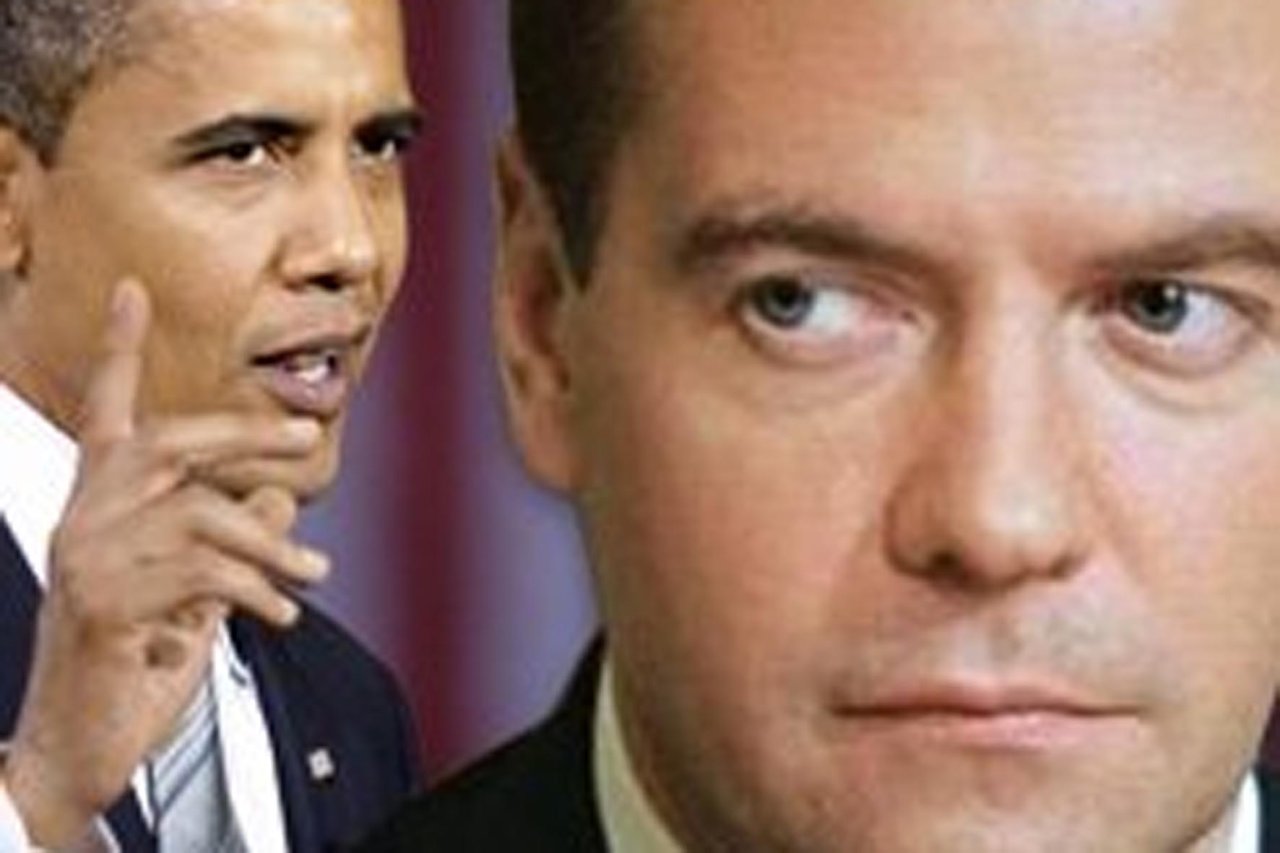The Russian and U.S. leaders meet in Singapore on Sunday as the clock is ticking for the world's two leading nuclear powers to strike a new arms cuts deal, Reuters reported.
Officials on both sides said U.S. President Barack Obama and Russian President Dmitry Medvedev are also expected to discuss Iran's nuclear program and Afghanistan during their 90-minute talks on the sidelines of a regional summit.
"Each meeting with the U.S. president gives a new substantial impetus to bilateral ties," Sergei Prikhodko, Medvedev's chief foreign policy adviser, told reporters ahead of the meeting. "We are sure Sunday's meeting will not be an exception," he added.
Sunday talks will focus on forging the work on a replacement for the START-I arms cuts pact, which expires on December 5.
Medvedev and Obama have committed themselves to striking the new treaty as part of their efforts to "reset" thorny relations between the two countries, which had sunk to post-Cold War lows during the presidency of Obama's predecessor, George W. Bush.
Both leaders also view the new treaty as an important element of maintaining global strategic stability.
Negotiators from both sides are reporting progress in talks and officials beamed optimism that a new document could be ready by the time or soon after the START-I expires.
Earlier this year, Obama removed the biggest irritant in bilateral ties by scrapping plans to deploy interceptor missiles in Poland and a radar in the Czech Republic, parts of a projected U.S. anti-missile defense against a strike by Iran.
Russia insists that anti-missile defense and strategic arms cuts pacts are closely interlinked.
However, before the Obama-Medvedev meeting the Russian media reported major unresolved problems concerning the new arms cuts pact. Kommersant daily said Moscow and Washington had no agreement on ceilings for the number of nuclear warheads and on whether the pact should handle Russian mobile missile complexes.
Prikhodko did not comment on the differences and on whether they could be overcome by December 5. He said the leaders viewed the quality of the new pact rather than the timing as a priority.
"We are satisfied at the moment by the quality of open and pragmatic dialogue with the U.S. administration," he said. "It allows us to hope for fruitful work on problems, where a solution has not been found yet."
Iran's nuclear program, seen as a priority diplomatic task by Obama, is one of such areas.
Russia, a veto-wielding permanent member of the U.N. Security Council, has long resisted introducing strong sanctions against Iran, which is suspected by the West of working on a nuclear bomb.
However, earlier this year Medvedev signaled a change in the Russian position suggesting that sanctions could become "inevitable" if other ways to persuade Iran fail.
Moscow has backed international incentives for Iran, including a proposal to enrich uranium in Russia and France for a Iranian nuclear reactor.
But Russia remains reluctant to join any sanctions before efforts of international negotiators, including four permanent U.N. Security Council Members and Germany, exhaust themselves.
"We are being pressurized to say that sanctions are inevitable," Prikhodko said. "We disagree and think that the work should be continued despite difficulties because the price of the issue is huge -- the global security and the future of nonproliferation regime," he added.






